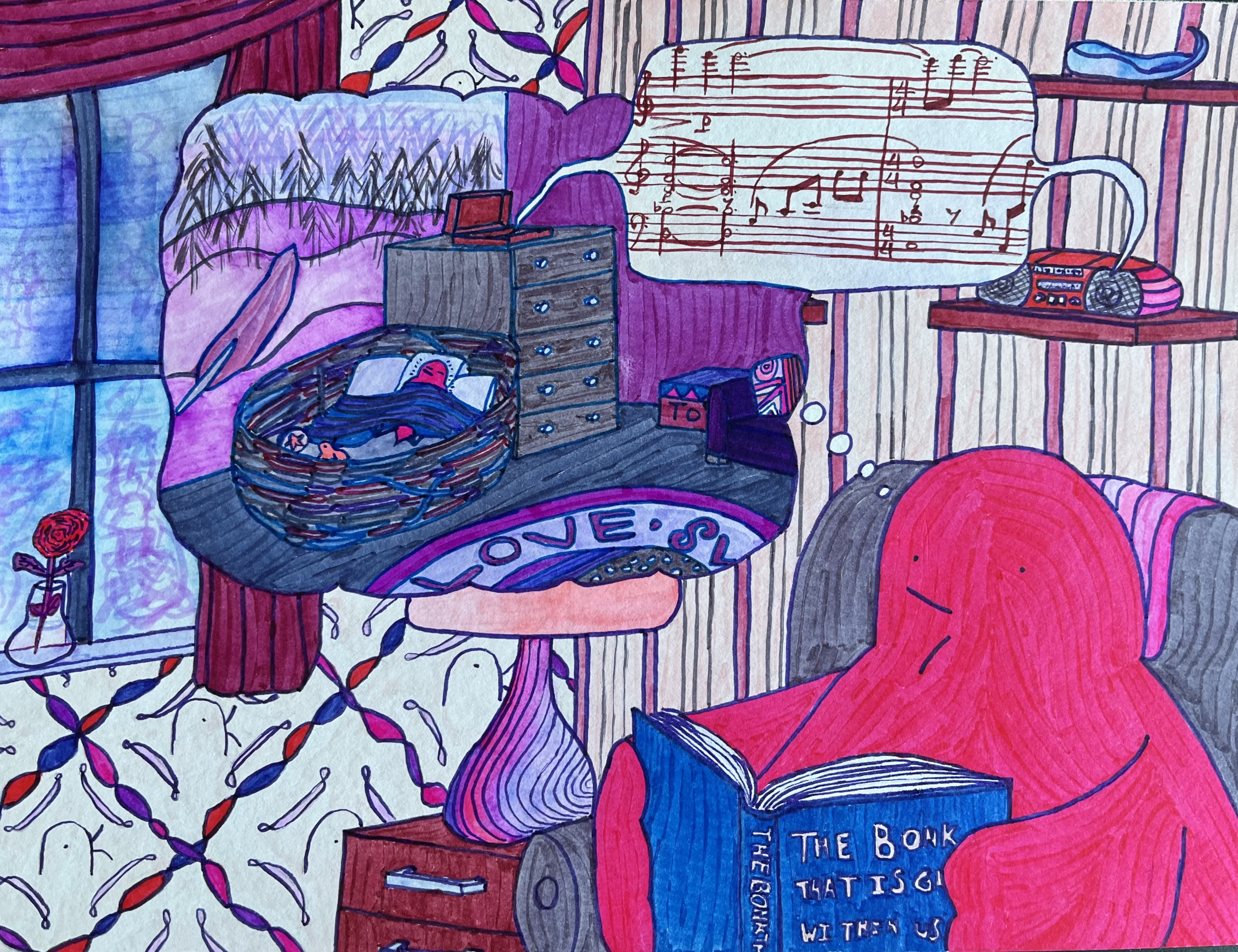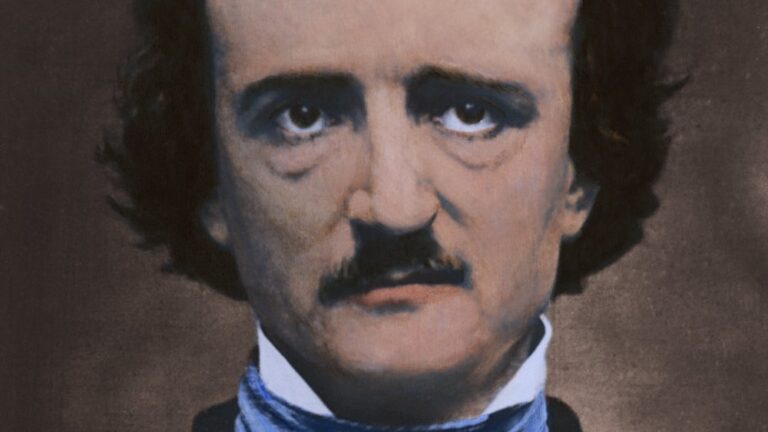Edgar Allan Poe, renowned for his macabre and dark literary works, was profoundly influenced by a series of tragic events throughout his life. It is fascinating to delve into the intricate web of pain, loss, and sorrow that shaped Poe’s writing style and themes. From the untimely death of his mother when he was just a young child to the tragic demise of his beloved wife, Virginia, Poe’s personal tragedies seemed to seep into his haunting tales of mystery and melancholy. This blog explores the profound impact of these heart-wrenching events on Poe’s creativity, unraveling the threads of darkness that weave through his enduring works.
Early Life of Edgar Allan Poe
Edgar Allan Poe, born in 1809, faced several tragedies early in his life that greatly influenced his writing. Orphaned at a young age after his parents passed away, Poe was taken in by the Allan family, where he faced the challenges of fitting into his new life.
Family Tragedies
Poe’s life was marred by multiple tragedies, including the death of his mother when he was only two years old. This early loss left a deep emotional scar on Poe, reflected in the melancholic themes of his literary works.
Despite being adopted by John Allan, Poe’s relationship with his foster father was strained, leading to further emotional turmoil, which seeped into his writing.
Educational Struggles
Poe’s academic life was challenging, with financial difficulties often hindering his studies. These struggles influenced his writing style and themes, showcasing themes of poverty, despair, and isolation.
- Poe attended the University of Virginia but had to leave due to financial constraints, leading to further setbacks in his education and personal life.
- His lack of a stable academic background and constant financial worries added to the tragic elements that defined his writing.

Impact of Tragic Events on Poe’s Writing
Edgar Allan Poe, a renowned American writer, was deeply influenced by various tragic events in his life. These events not only shaped his writing style but also infused a sense of melancholy and macabre themes in his works.
Early Loss and Grief
From losing his mother at a young age to the untimely death of his beloved wife, Virginia, Poe’s life was marked by profound loss and grief. This constant exposure to death and sorrow deeply impacted his writing, leading to the creation of haunting and sorrowful tales.
Furthermore, the trauma of these events continued to haunt Poe throughout his life.
Mental Turmoil and Psychological Struggles
Poe’s struggles with mental health and depression significantly influenced the dark and brooding nature of his writing. His inner turmoil often found expression in his stories, adding layers of depth and intensity to his narratives.
- The depiction of madness and obsession in many of his works reflects his own internal battles.
The Death of Loved Ones
The death of loved ones played a significant role in influencing Edgar Allan Poe’s writing, reflecting the deep emotional turmoil he experienced throughout his life.
Impact on Poe’s Themes
The tragic events of losing loved ones often made Poe delve into themes of death, loss, and mourning in his works, which added a haunting and melancholic tone to his writing.
This emotional depth resonated with readers, creating a lasting impact on the world of literature.
Reflecting Personal Grief
Poe’s personal grief and suffering, stemming from the deaths of those close to him, found expression in his works, such as the poem “The Raven,” where the protagonist mourns the loss of his beloved Lenore.
- This intense emotional connection to loss and sorrow is a recurrent theme in Poe’s writing.
Mental Health Struggles
Edgar Allan Poe, a renowned writer, was deeply influenced by tragic events in his life, which significantly impacted his mental health struggles. Poe experienced a series of devastating losses and personal traumas that left a profound mark on his writings.
Impact of Personal Losses
Poe’s life was marred by the deaths of those close to him, including his mother, stepmother, and wife. These losses plunged him into a state of grief and despair, which is reflected in the melancholic and dark themes prevalent in his works, such as “The Raven” and “Annabel Lee.”
Struggles with Mental Illness
Alongside his personal losses, Poe battled with mental health issues, including depression and substance abuse. His struggles with these conditions influenced the tone and mood of his writing, portraying a sense of emotional turmoil, isolation, and psychological distress.
- Depression: Poe’s depressive episodes often manifested as a pervasive sense of sadness and hopelessness, which seeped into his narratives, creating a gloomy and somber atmosphere.
- Substance Abuse: The poet’s reliance on substances like alcohol to cope with his inner demons further exacerbated his mental health struggles, leading to erratic behavior and self-destructive tendencies.
Themes of Death and Loss in Poe’s Works
Edgar Allan Poe, known for his macabre writing style, depicts themes of death and loss in many of his works. These themes are often influenced by the tragic events that occurred in Poe’s own life, shaping his literary creations.
Impact of Personal Loss
Poe’s writings often reflect the profound impact of personal loss on his characters, mirroring his own experiences of bereavement and grief. The emotions of sorrow and longing permeate his works, adding depth to his portrayal of death.
In “The Raven,” for instance, Poe delves into the mourning process through the protagonist’s interaction with the mysterious bird, symbolizing the lingering presence of loss.
Exploration of Mortality
In poems like “Annabel Lee” and “Lenore,” Poe explores the inevitability of mortality and the enduring power of love beyond the grave. His vivid imagery and haunting narratives capture the essence of death as a pervasive force in human existence.
- Themes of immortality and eternal love are recurrent in Poe’s works, reflecting his fascination with the mysteries of life and death.
Influence of Tragic Events on Poe’s Style and Tone
Edgar Allan Poe’s writing style and tone were profoundly influenced by the tragic events he experienced throughout his life. These events, ranging from the early loss of his mother to the untimely deaths of his loved ones, greatly impacted the dark and melancholic themes present in his works.
Early Loss and Grief
Poe’s childhood was marked by the tragic loss of his mother at a young age. This event left a lasting impact on his psyche, leading to a recurring theme of grief and despair in his literary works. What tragic events influenced Poe’s writing during his formative years can be traced back to this early loss.
Personal Tragedies
The series of personal tragedies Poe encountered, including the deaths of his wife Virginia and his close friends, further deepened his sense of sorrow and loss. These experiences infused his writing with a sense of morbidity and a preoccupation with death, evident in works like “The Raven” and “The Fall of the House of Usher.”
Comparisons with Other Writers of His Time
When examining what tragic events influenced Poe’s writing, it is essential to compare his work with other writers of his time. Edgar Allan Poe stood out among his contemporaries due to his dark, macabre themes and psychological depth. While writers like Nathaniel Hawthorne focused on moral allegories, Poe delved into the human psyche’s darker aspects.
Poe vs. Hawthorne
Poe delved into the human psyche’s darker aspects, exploring themes of madness and grief. On the other hand, Hawthorne often explored moral dilemmas and the consequences of sin.
Poe vs. Emerson
Poe focused on individual introspection and the dark side of humanity, while Emerson celebrated self-reliance and the beauty of nature.
Legacy of Edgar Allan Poe
Edgar Allan Poe’s legacy continues to influence literature and culture, with his works known for their macabre themes and mysterious narratives.
Impact on Gothic Fiction
Poe’s writings greatly impacted the development of Gothic fiction, introducing psychological depth and dark, melancholic settings to the genre.
Influence on Detective Fiction
Poe’s creation of the fictional detective C. Auguste Dupin laid the groundwork for future detective stories and characters, influencing renowned detectives like Sherlock Holmes.
Frequently Asked Questions
-
- How did tragic events influence Poe’s writing?
- Tragic events played a significant role in shaping Poe’s writing style and themes. They often inspired dark and eerie narratives filled with despair, grief, and madness.
-
- Can you provide examples of how Poe’s personal tragedies influenced his works?
- Certainly. Poe’s works such as ‘The Raven’ and ‘Annabel Lee’ are believed to have been influenced by the loss of loved ones in his life, reflecting themes of death and mourning.
-
- Did Poe’s own experiences with tragic events contribute to the gothic elements in his writing?
- Yes, Poe’s personal experiences with tragic events, such as the death of his wife, mother, and foster mother, are thought to have fueled the gothic and macabre elements in his writing.
-
- How did Poe’s fascination with death and the supernatural connect to the tragic events in his life?
- Poe’s fascination with death and the supernatural is believed to stem from the profound losses he experienced, leading him to explore themes of mortality, grief, and the unknown in his works.
-
- In what ways did Poe use his writing to cope with tragic events?
- Writing served as a cathartic outlet for Poe to process his grief and sorrow from the tragic events in his life. His works often served as a reflection of his personal struggles and emotions.
Unveiling the Impact: Final Thoughts
Edgar Allan Poe’s works were undeniably influenced by several tragic events that colored his life with darkness and melancholy. The untimely deaths of his loved ones, his struggles with alcoholism, and the sense of isolation permeating his existence all found their way into his haunting tales and poems.
Through his writing, Poe masterfully translated his personal anguish into timeless pieces that continue to captivate audiences worldwide. The themes of death, grief, and madness that echo throughout his works reflect his profound understanding of the human psyche and the darker facets of existence.
By delving into Poe’s life and the tragedies that shaped him, we gain a deeper appreciation for the complexity and brilliance of his literary legacy.

